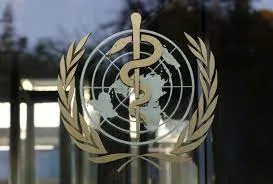
WHO Launches EIOS 2.0 to Strengthen Global Health Intelligence and Threat Detection
The World Health Organization (WHO) today announced the official launch of version 2.0 of its Epidemic Intelligence from Open Sources (EIOS) system, a major milestone in global health security. Developed in collaboration with key international partners, the EIOS system has been instrumental in detecting emerging public health threats and supporting early response efforts worldwide since its inception in 2017. Over the past six years, the initiative has grown considerably, now serving more than 110 Member States and approximately 30 global organizations and networks.
The upgraded EIOS 2.0 integrates additional data sources and advanced functionalities, including artificial intelligence (AI), to provide more accurate and timely insights for public health decision-making. Hosted at the WHO Hub for Pandemic and Epidemic Intelligence in Berlin, the platform is designed to analyze large volumes of publicly available information in near real-time, enabling public health teams to detect potential threats and take action quickly.
“Today, we are not just celebrating the launch of a new system; we are entering a new era of global collaboration, innovation, and rapid response to health threats,” said Dr. Chikwe Ihekweazu, Executive Director of the WHO Health Emergencies Programme. “EIOS version 2.0 represents a bridge to the future: more open, more agile, and more inclusive than ever before.”
Recent public health emergencies, including the COVID‑19 pandemic, mpox outbreaks, and avian influenza events, have highlighted the critical importance of early detection. With version 2.0, public health professionals worldwide are now better equipped to identify new threats, monitor ongoing outbreaks, and evaluate events influenced by conflict, climate change, or the emergence of novel and re-emerging pathogens.
Enhanced Features and Capabilities
EIOS 2.0 is the most substantial upgrade to the platform to date, featuring a suite of new tools and capabilities designed to enhance usability, accessibility, and analytical power:
- Built for growth: The system has been reconstructed to process larger volumes of information, support a greater number of users simultaneously, and allow for rapid integration of new features.
- AI integration: The platform now leverages advanced AI tools to improve automated analysis, signal detection, and prioritization of relevant health events.
- Expanded data sources: EIOS can now process diverse sources, including radio channels, which are automatically transcribed and translated to capture real-time information from regions where digital coverage may be limited.
- User-friendly and multilingual interface: A redesigned interface supports multiple languages, ensuring accessibility for non-English speakers, while a new dashboard provides clear, intuitive navigation for finding and sharing critical reports.
- Improved collaboration: The updated system enables users from different countries and organizations to track, monitor, and jointly assess emerging health events more efficiently.
As a public good, the EIOS system is provided free of charge to WHO Member States and eligible organizations, accompanied by comprehensive training and access to a global Community of Practice. Ministries of Health and public health agencies use EIOS to supplement information from formal channels such as laboratories and hospitals. By extracting and analyzing relevant content from websites, social media, and other open sources, the system enables early identification of health events, which can then be verified and assessed by authorities for action.
Global Support and Strategic Partnerships
The launch event at the WHO Hub in Berlin brought together long-standing partners, including the German Government, the European Commission, the Joint Research Centre (JRC), and the Health Emergency Preparedness and Response Authority (HERA), as well as innovation and development collaborators and members of the EIOS global Community of Practice.
“Better data – better analytics – better decisions. We are thrilled to launch EIOS 2.0 at the WHO Hub in Berlin,” said Nina Warken, Germany’s Federal Minister of Health. “Reliable data and transparent decision-making processes are essential for building public trust during emergencies. Strengthening the EIOS initiative and the WHO Hub’s capabilities will accelerate detection, analysis, and response to health threats globally.”
Highlighting the importance of cross-border collaboration, Hadja Lahbib, European Commissioner for Preparedness, Crisis Management, and Equality, emphasized: “Early detection of public health threats is critical to prevent emerging diseases from becoming endemic or escalating into a pandemic. The EU is proud to collaborate closely with WHO to enhance its public health intelligence system, improve global resilience, and ensure better preparedness. Together, we are building a safer, more connected, and more responsive global health community.”
Training and Support for Member States
To support the global rollout of EIOS 2.0, WHO has introduced updated guidance materials, multilingual webinars, and interactive help clinics. Additionally, an online training course developed in collaboration with the WHO Academy is now available to assist Member States and organizations in maximizing the platform’s capabilities. These efforts ensure that public health professionals worldwide are equipped with the skills and knowledge to make informed decisions, identify emerging threats rapidly, and coordinate effective responses.
Since its launch, the EIOS system has demonstrated its value in strengthening health security worldwide. With version 2.0, WHO and its partners are setting a new standard for global health intelligence, enabling countries to respond to public health threats faster, more efficiently, and with greater coordination. This upgrade underscores the organization’s commitment to leveraging innovative technology and international collaboration to safeguard populations and prevent future outbreaks from escalating into global crises.





